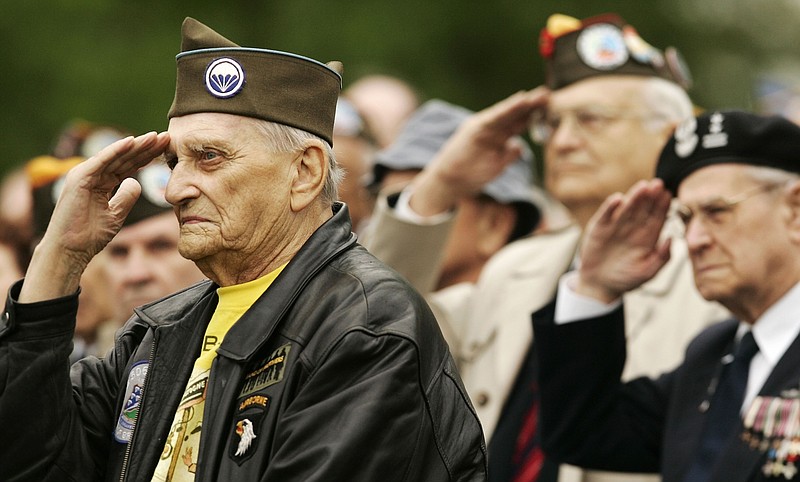During my freshman year at the Air Force Academy, I had to memorize a number of thought-provoking quotations to recite verbatim upon demand from upperclassmen. One of my favorites was, and still is, from Gen. Douglas MacArthur.
Gen. MacArthur was superintendent of the Military Academy at West Point from 1919 to 1922, and he instituted many reforms in the intramural and intercollegiate athletic regimen. He reasoned, "Upon the fields of friendly strife are sewn the seeds that on other days and other fields will bear the fruits of victory." Since our athletic program was much like West Point's, the great general's words were particularly meaningful.
From sports, athletes learn the value of competing as a unit. They learn the whole can be stronger than individuals by sacrificing individual desires so the team can win. MacArthur extrapolated the sports theme into placing the personal goals of individual American citizens second to the more honorable goal of respecting and defending our country as a whole.
The recent spate of protests during our national anthem made me reflect on MacArthur's words, and they coincide with a very poignant personal time as my 92-year-old father is in ill health. Dad was drafted into the Army during World War II. Twenty years old and fresh off the farm, he found himself in the midst of the largest land battle in world history: the Battle of the Bulge in December 1944.
In 1988, I was stationed at Spangdahlem Air Base, Germany, and Dad came to visit. My family drove with him to Belgium, where the battle was fought, and there we found a peaceful pasture along a country lane where he and his fellow soldiers manned a machine gun outpost during the horrifying battle. As we drove along the road back toward Germany, he reminisced about traversing that same road after the weather cleared and the Allies reversed the German advance.
Fighting tears, he told us he passed dozens of pockets of dead American soldiers for miles along that highway. They were told they could not retreat from the German onslaught because there were no reinforcements behind them. So, they fought to their death. They knew the true meaning of sacrificing self for the whole. Because of them, the evil Nazi socialists and fascists who controlled Germany were defeated and millions of people live in freedom today.
Undoubtedly, there were men serving with my father who did not support all the policies of the United States. My father, in fact, was no admirer of his own commander in chief, Franklin Roosevelt. However, like millions of other young Americans, his own perspectives were secondary to his patriotic duty.
Such values seem distant for athletes choosing to make a political statement during our national anthem. They are disrespectful not only of their team but of their nation. They abuse their status as team members to make a selfish political statement without earning the right to do so. Heroic American soldiers like those who died along that rural highway in Belgium sacrificed everything so we could have such freedom, thereby earning the respect we display for them through our flag and our anthem.
To disrespect their sacrifice is disgraceful. A Brainerd High School football coach chose such a course last week before administrators wisely intervened. Perhaps, had the coach focused more on football fundamentals, teamwork, conditioning, and discipline instead of politics, the team might not have lost Friday night to Marion County, 74-34. That was a tough lesson. Hopefully, such a lesson might "on other fields, bear the fruits of victory."
Roger Smith, a retired U.S. Air Force lieutenant colonel, is an author and frequent contributor to the Times Free Press.
